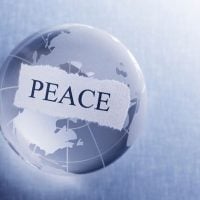The World Bank Group is a vital institution in the global landscape of development finance, dedicated to reducing poverty and fostering sustainable economic growth. Established in 1944, the organization comprises five distinct entities, each with its own focus and operational strategies. The International Bank for Reconstruction and Development (IBRD) and the International Development Association (IDA) are the two primary arms that provide financial and technical assistance to developing countries.
The International Finance Corporation (IFC) focuses on the private sector, while the Multilateral Investment Guarantee Agency (MIGA) offers political risk insurance and credit enhancement. Lastly, the International Centre for Settlement of Investment Disputes (ICSID) provides facilities for conciliation and arbitration of investment disputes. The overarching mission of the World Bank Group is to end extreme poverty and promote shared prosperity.
This mission is pursued through a variety of means, including providing loans, grants, and expert advice to governments and organizations in developing nations. The World Bank Group emphasizes a collaborative approach, working closely with local stakeholders to ensure that projects are tailored to the specific needs and contexts of the countries they serve. By leveraging financial resources, knowledge, and partnerships, the World Bank Group aims to create sustainable solutions that empower communities and foster long-term development.
Operations in Sub-Saharan Africa
Sub-Saharan Africa is a region of immense potential but also faces significant challenges, including high levels of poverty, inadequate infrastructure, and vulnerability to climate change. The World Bank Group has been actively involved in addressing these issues through various initiatives aimed at promoting economic growth and improving living standards. One notable example is the Africa Climate Business Plan, which seeks to mobilize investments in climate-resilient infrastructure and sustainable agriculture.
By focusing on climate adaptation and mitigation strategies, the World Bank Group aims to enhance the resilience of communities while promoting economic opportunities. In addition to climate initiatives, the World Bank Group has also prioritized investments in education and health in Sub-Saharan Africa. Programs such as the Global Partnership for Education have been instrumental in increasing access to quality education for children in underserved areas.
Furthermore, health initiatives aimed at combating diseases like malaria and HIV/AIDS have significantly improved health outcomes across the region. By addressing these critical sectors, the World Bank Group is not only contributing to immediate improvements but also laying the groundwork for sustainable development in the long term.
Operations in East Asia and the Pacific
The East Asia and Pacific region has experienced remarkable economic growth over the past few decades, lifting millions out of poverty. However, challenges remain, particularly in terms of inequality, environmental sustainability, and disaster resilience. The World Bank Group has been actively engaged in supporting countries in this region through a range of projects designed to address these pressing issues.
For instance, the East Asia Pacific Disaster Risk Management Program focuses on enhancing disaster preparedness and response capabilities among member countries. By investing in infrastructure improvements and community resilience initiatives, the program aims to mitigate the impacts of natural disasters on vulnerable populations. Moreover, the World Bank Group has recognized the importance of fostering inclusive growth in East Asia and the Pacific.
Initiatives such as the Social Protection System Program aim to provide safety nets for marginalized communities, ensuring that economic growth benefits all segments of society. By promoting social inclusion and equitable access to resources, the World Bank Group is working towards a more balanced development trajectory that addresses both economic and social dimensions.
Operations in South Asia
South Asia is home to some of the world’s most populous countries, presenting both opportunities and challenges for development. The World Bank Group has been actively involved in addressing issues such as poverty alleviation, infrastructure development, and gender equality in this diverse region. One significant initiative is the South Asia Regional Trade Facilitation Project, which aims to enhance trade connectivity among member countries by streamlining customs procedures and reducing trade barriers.
This project not only promotes economic growth but also fosters regional cooperation and integration. In addition to trade facilitation, the World Bank Group has placed a strong emphasis on gender equality in South Asia. Programs such as the Women Entrepreneurs Finance Initiative (We-Fi) aim to empower women by providing access to finance and resources necessary for entrepreneurship.
By supporting women’s economic participation, the World Bank Group is contributing to broader efforts to achieve gender equality and improve overall economic resilience in South Asia.
Operations in Latin America and the Caribbean
Latin America and the Caribbean have long been characterized by their rich cultural diversity and natural resources; however, they also face significant socio-economic challenges. The World Bank Group has been actively engaged in addressing these challenges through various initiatives aimed at promoting sustainable development. One notable example is the Latin America and Caribbean Climate Change Program, which focuses on enhancing climate resilience across sectors such as agriculture, water management, and urban planning.
By integrating climate considerations into development planning, the World Bank Group aims to support countries in adapting to changing environmental conditions. Furthermore, social inclusion remains a key priority for the World Bank Group’s operations in Latin America and the Caribbean. Programs aimed at improving access to education, healthcare, and social services have been implemented across several countries in the region.
For instance, conditional cash transfer programs have proven effective in reducing poverty by incentivizing families to invest in their children’s education and health. By addressing social disparities and promoting inclusive growth, the World Bank Group is working towards a more equitable future for all citizens in Latin America and the Caribbean.
Operations in the Middle East and North Africa
The Middle East and North Africa (MENA) region is characterized by its rich history and cultural heritage but also faces complex challenges related to political instability, economic diversification, and youth unemployment. The World Bank Group has been actively involved in supporting MENA countries through various initiatives aimed at fostering stability and promoting sustainable development. One significant focus area is job creation for youth, as this demographic represents a substantial portion of the population.
Programs such as the MENA Youth Employment Initiative aim to equip young people with skills relevant to labor market demands while promoting entrepreneurship. In addition to youth employment initiatives, the World Bank Group has prioritized water resource management in MENA due to its arid climate and water scarcity issues. Projects aimed at improving water efficiency and promoting sustainable agricultural practices have been implemented across several countries in the region.
By addressing critical resource management challenges, the World Bank Group is contributing to long-term sustainability while enhancing food security for vulnerable populations. In conclusion, the World Bank Group plays a crucial role in addressing global development challenges across various regions. Through targeted initiatives that focus on poverty reduction, economic growth, social inclusion, and environmental sustainability, the organization strives to create lasting impacts that empower communities worldwide.
By fostering collaboration with local stakeholders and leveraging financial resources effectively, the World Bank Group continues to be a key player in shaping a more equitable future for all nations.








































